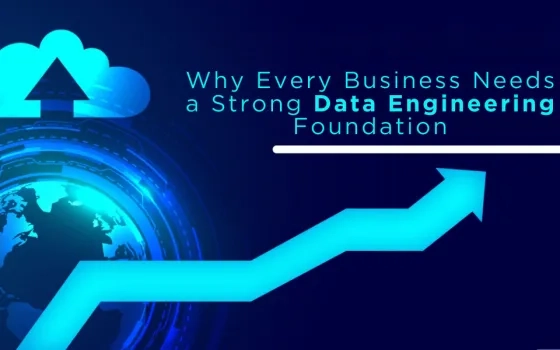
As a Senior Data Analyst, I understand that building strong Data Analytics skills is essential for anyone interested in pursuing a career in this field. Whether you're just starting out or looking to enhance your existing knowledge, developing these skills can open up many doors and provide you with a competitive edge in today’s job market. In this blog, I will guide you through the basics of data analytics, how to build strong data analytics skills, and tips on how to apply them in real-life scenarios.
What Are Data Analytics Skills?
Data analytics skills refer to the abilities and knowledge required to analyze and interpret data to make informed decisions. These skills range from basic data collection to advanced statistical analysis and machine learning. With data becoming more integral in business decision-making, the demand for strong data analytics skills is at an all-time high.
Why Are Data Analytics Skills Important?
Having strong data analytics skills allows you to unlock valuable insights from raw data, which can help businesses make better decisions, improve performance, and predict trends. As businesses rely more on data-driven decision-making, data analysts and professionals with these skills are in high demand.
For beginners, having a solid foundation in data analytics skills can set you on the path to success in various roles, including business analyst, marketing analyst, financial analyst, and data scientist.
Key Data Analytics Skills to Focus On
As a beginner, it’s important to start by focusing on the core data analytics skills that form the foundation of this field. Here are the essential skills you should focus on:
1. Understanding Data and Data Structures
Before diving into data analytics, it’s important to understand the types of data you’ll be working with and how to organize them. Data can be structured (like tables in databases) or unstructured (like social media posts, images, etc.). Being able to understand how data is structured and how to work with it is one of the most fundamental data analytics skills.
2. Data Cleaning and Preparation
In real-world scenarios, data is rarely perfect. One of the most critical skills in data analytics is data cleaning—removing inaccuracies, missing values, and inconsistencies from datasets. As a beginner, learning how to clean data efficiently will save you time and help you draw more accurate conclusions.
3. Basic Statistical Knowledge
A solid understanding of statistics is crucial for any data analyst. You’ll need to understand concepts like averages, medians, percentiles, correlation, and probability. This knowledge helps you make sense of data patterns and relationships. Start by learning basic descriptive statistics and progress to more advanced techniques like hypothesis testing and regression analysis.
4. Excel or Spreadsheets
Excel is one of the most widely used tools for data analysis. As a beginner, getting comfortable with Excel and its functions will be a significant advantage. Learn how to manipulate data, use formulas, and create visualizations such as charts and graphs. Once you’re familiar with Excel, you can transition to more advanced tools like Google Sheets or Power BI.
5. Data Visualization
Being able to visualize data is a key part of data analytics skills. Creating clear, easy-to-understand charts and graphs allows stakeholders to interpret data quickly and make informed decisions. Tools like Excel, Tableau, and Power BI can help you present data in visual formats that convey your findings effectively.
6. Learning SQL (Structured Query Language)
SQL is a programming language used to interact with databases. As a data analyst, you’ll often need to query databases to extract relevant data for analysis. Learning SQL is an important skill that will help you efficiently pull data from relational databases, making it easier to analyze and work with.
7. Basic Programming Skills (Python or R)
While not mandatory for all data analysts, learning a programming language like Python or R can be extremely helpful. Both languages are popular in the data analytics field due to their powerful libraries for data manipulation, analysis, and visualization. Python, for example, offers libraries like Pandas, NumPy, and Matplotlib that can make your data analysis process more efficient.
8. Problem-Solving and Critical Thinking
In data analytics, you are often faced with complex problems that require creative solutions. Developing your problem-solving and critical thinking skills will help you approach data analysis tasks more effectively. Learn how to break down complex issues, look at data from different angles, and identify the most relevant factors influencing your analysis.
How to Develop Your Data Analytics Skills
Now that we’ve covered the key data analytics skills, it’s time to dive into practical ways you can develop them.
- Online Courses and Tutorials: One of the easiest ways to start developing your data analytics skills is by taking online courses. There are plenty of free and paid resources available, such as DataMites, Skillogic, and Skillfloor, that offer courses on data analytics, statistics, and specific tools like Excel, SQL, Python, and R. Look for beginner-friendly courses that introduce you to the fundamentals of data analytics.
- Practice with Real Data: Once you have a basic understanding of data analytics skills, it’s time to practice. You can download open datasets from websites like Kaggle or data.gov and start working with them. This will allow you to practice your skills in a real-world context and deepen your understanding of data analysis concepts.
- Work on Personal Projects: One of the best ways to build your data analytics skills is to work on personal projects. Choose an area that interests you, such as analyzing sales data or exploring customer behaviors, and apply the techniques you’ve learned to solve a problem. Personal projects also give you something tangible to showcase to potential employers.
- Join Data Analytics Communities: Joining data analytics communities, such as online forums or LinkedIn groups, allows you to learn from others, ask questions, and share your experiences. Engaging with experienced data analysts can give you valuable insights into the field and help you learn best practices.
- Stay Up-to-Date with Industry Trends: Data analytics is a constantly evolving field. Make sure to stay updated with the latest trends, tools, and techniques by following blogs, attending webinars, and reading industry reports. Being aware of new developments will help you keep your data analytics skills sharp.
Real-Life Application of Data Analytics Skills
As you develop your data analytics skills, it’s important to think about how you can apply them in real-life situations. Whether you’re analyzing sales trends, customer feedback, or financial data, your ability to extract meaningful insights from data will have a significant impact on business decisions.
For example, if you're working in marketing, your data analytics skills can help you identify customer preferences, predict future trends, and measure the effectiveness of campaigns. If you're in finance, you can use data analytics to track financial performance, assess risks, and improve investment strategies.
Building strong data analytics skills is a journey that requires continuous learning and practice. Whether you're a complete beginner or looking to sharpen your existing knowledge, focusing on the key data analytics skills outlined above will set you up for success. By taking courses, practicing with real data, and staying up-to-date with industry trends, you'll be well on your way to becoming a proficient data analyst. Remember, as a data analyst, your role is not just to collect data but to interpret it and turn it into actionable insights. The more you hone your data analytics skills, the better equipped you'll be to make informed, data-driven decisions that benefit both yourself and the organizations you work with.


















